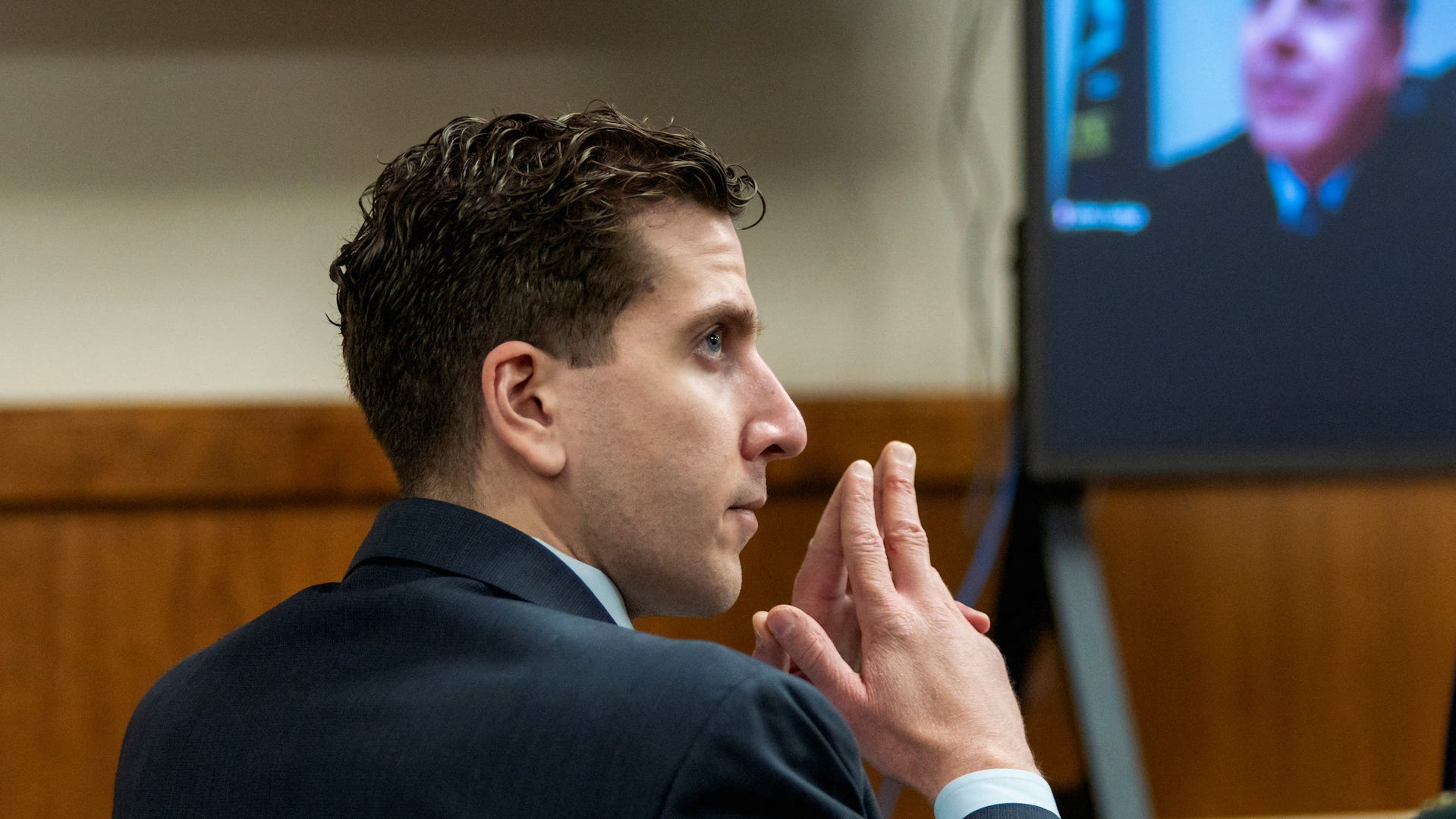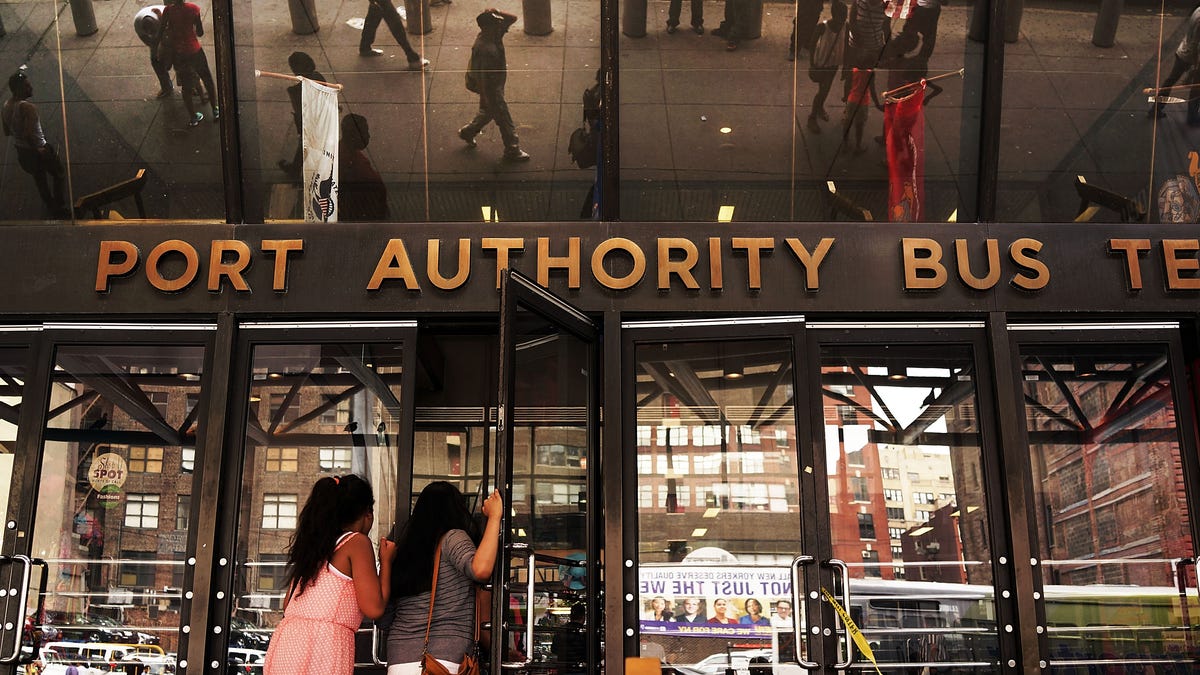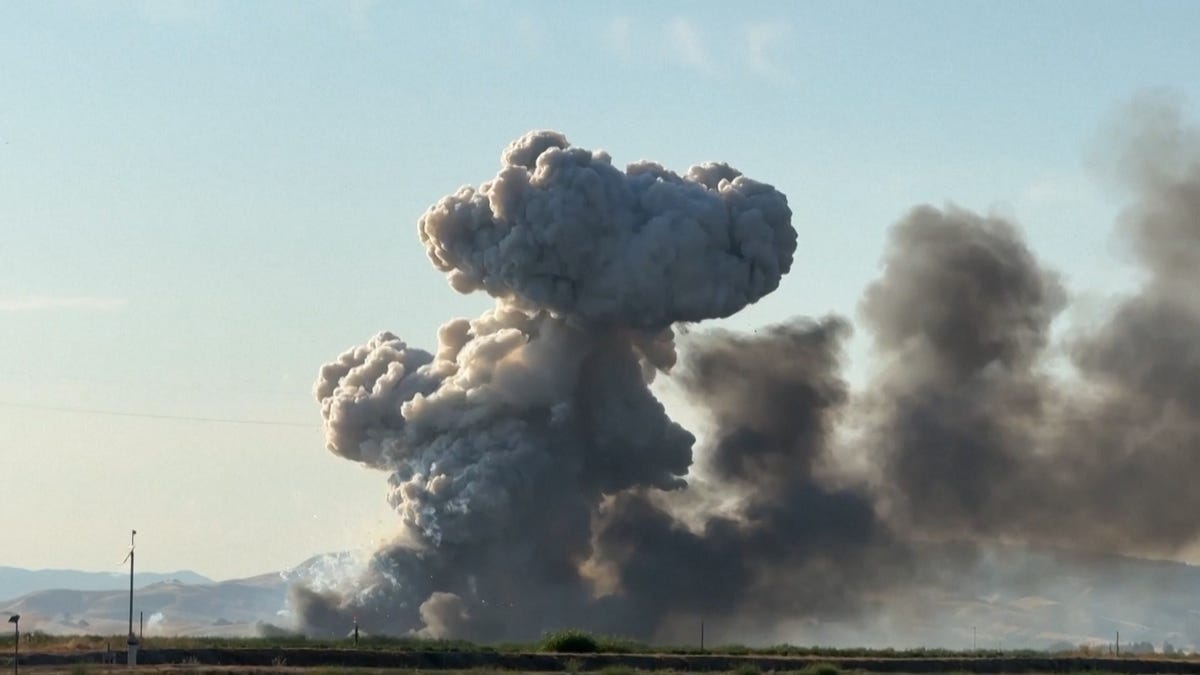The resolution was reached over the objections of at least one of the victims’ families.

Suspect in murders of four Idaho college students agrees to plea deal
Bryan Kohberger, the man accused of killing four Idaho college students in 2022, has agreed to plead guilty to all counts, according to ABC News.
Bryan Kohberger pleaded guilty on July 2 to the slayings of four Idaho college students in 2022 and is expected to face a life behind bars, but the resolution was reached over the objections of at least one of the victims’ families.
The rapid conclusion to the case highlights the controversial role plea deals have taken on in the criminal justice system, amid criticism from both victims’ families and criminal justice reform advocates.
In Kohberger’s case, his deal spared him the possibility of a death penalty sentence. He was charged in the murders of Madison Mogen, 21; Kaylee Goncalves, 21; Xana Kernodle, 20; and Ethan Chapin, 20.
The family of Goncalves bashed the plea agreement and said prosecutors mishandled a rushed and “secretive” deal. Kohberger changed his plea to guilty in a hearing on July 2 and the judge accepted the agreement.
A sentencing hearing is scheduled for July 23. Judge Steven Hippler said he scheduled the hearing at a time that would allow victims’ families to have ample opportunity to make statements before the sentence was officially handed down.
The four victims were found stabbed to death in their rental house close to the University of Idaho campus on Nov. 13, 2022. The killings rocked the university town of Moscow and set residents on edge for weeks. Kohberger was arrested Dec. 30 in Pennsylvania, where his family lives. His murder trial was to start in August after several delays and setbacks for the defense team over evidence and defense strategy.
Do victims’ families have a say in plea deals?
Every state in the country has a crime victims’ bill of rights that outlines how much involvement in criminal proceedings they are entitled to, but no state offers victims or their families the ability to veto a plea agreement made between prosecutors and defendants, experts said.
Prosecutors represent victims to a certain extent, but their primary duty is to represent the people in any criminal trial, said John Jay College of Criminal Justice adjunct professor Diane Peress, a former federal and state prosecutor in New York. Sometimes that means victims or their families will be unhappy with the terms of a plea deal.
“You have to make the best decision you can,” Peress said. “You are trying to help the victims, you are trying to get justice for the victims, but you also have a responsibility to the people of the state, or if you’re a U.S. attorney, to the government, to the people of the United States.”
How does a plea deal work?
A plea deal is an agreement struck between a defense team and prosecutor that can include a prosecutor pursuing lesser charges or a lesser sentence in exchange for the defendant pleading guilty. Prosecutors said they would pursue the death penalty if Kohberger was convicted, but took it off the table in the plea agreement, which would leave him with four consecutive life sentences and no chance to appeal on the most serious charges, according to ABC News.
The vast majority of criminal convictions (between 90% and 95%) in the United States are the result of plea deals, at both the state and federal level, according to the Bureau of Justice Statistics. That means trials are a relatively rare, and as the Justice Department’s Office for Victims of Crime noted in a 2002 report, without including victims in the plea agreement process, it means victims will be “effectively denied any chance for meaningful participation in the criminal justice process.”
Today, every state at a minimum requires that victims or their family representatives are notified of important case information like plea agreements, said Renée Williams, CEO of the National Center for Victims of Crime and the director of the National Crime Victim Bar Association. In many states, victims can also consult with prosecutors about the plea deal or offer their opinions. How much prosecutors take their opinions into account can vary from state to state, jurisdiction to jurisdiction or even prosecutor to prosecutor, Williams said.
But victims don’t have a final say, she said.
“As an advocate for victims, but also as an advocate for public safety, I don’t think we would want a right of refusal,” Williams said. “It would be difficult and it would be troubling to give complete weight to the victims’ preference, especially when you have several victims, such as in this case, and you have several families who may have differing opinions.”
The most valuable thing prosecutors can do to honor victims in the plea negotiation process is to be transparent with them about the process and what a realistic outcome might be, Williams said.
What does Idaho law say about victims’ input
In Idaho, victims of crimes have several rights set forth in law. They include the right to be treated with “fairness, respect, dignity and privacy;” the right to be present at all proceedings; and the right to be “heard, upon request” at proceedings regarding guilty pleas, sentencing and release.
Another right: Victims are “afforded the opportunity to communicate with the prosecution in criminal or juvenile offenses, and be advised of any proposed plea agreement by the prosecuting attorney prior to entering into a plea agreement in criminal or juvenile offenses involving crimes of violence, sex crimes or crimes against children.”
Put simply, victims of crimes in Idaho have a right to be informed of a plea agreement, and they can voice their opinions. Prosecutors aren’t obligated to make plea agreement decisions based on victims’ opinions.
In Idaho and many states, a judge can either accept or reject the terms of a plea deal reached between prosecutors and a defendant. It’s incredibly rare for a judge to reject a deal based on outrage from a victim or their family, especially if there are multiple victims who disagree, Williams said.
Still, there have been cases of judges rejecting deals because of victim feedback. In her 35-year career as a prosecutor, mostly of white-collar crimes, Peress said she has twice encountered a judge who rejected an initial plea deal because family members were unhappy.
“The people who were defrauded could show up in the courtroom, write letters to the judge and really make their voices heard that this is not acceptable,” Peress said. “So the input of the victims and the victims’ family is definitely taken into consideration by the judge. There’s a lot of balancing that goes on.”
Why prosecutors sometimes go against victims’ wishes
Victims are not monoliths, and there is no one right way to go about a criminal case or a plea deal that would bring peace to all victims, Williams said. Some victims might support a plea deal so they can avoid sitting through a lengthy trial, which can be a painful experience of reliving their or their family’s trauma.
“A plea bargain for a lot of people closes a door,” Williams said.
For others, no form of justice will ever feel like enough, she said. Many will have to work to find peace outside the criminal justice system, which is imperfect for all involved, but especially victims, Williams said.
“They had their child ripped away from them,” Williams said. “I imagine it feels like somebody is handing (Kohberger) a lifeline. And that doesn’t seem fair. Nobody handed their child a lifeline.”
But the death penalty – let alone a guilty verdict – is never a guaranteed outcome if a case goes to trial, Peress said. Prosecutors in Idaho may have felt taking capital punishment off the table was a reasonable outcome for Kohberger. Take the trial of the Parkland, Florida, school shooter, who was found guilty by a jury but spared from the death penalty in a separate sentencing trial. Many of the victims’ families were “beside themselves” at that result, she noted.
“It’s very difficult to tell people who are in pain and who have been hurt, this is the best that you can hope for, this is the best you can do,” Peress said.
Contributing: Reuters






